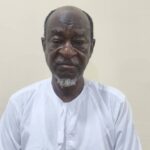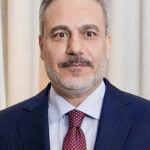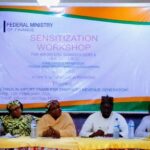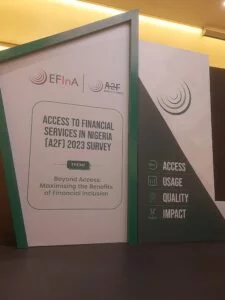By Lydia Ngwakwe
The Enhancing Financial Innovation and Access (EFInA) says the percentage of adults who use regulated financial services in Nigeria has reached 74 per cent in 2023.
Dr Oluwatobi Eromosele, General Manager/ A2F Research Lead, EFInA, disclosed this while presenting Access to Financial Services in Nigeria (A2F) 2023 survey results on Wednesday in Lagos.
The News Agency of Nigeria (NAN) reports that the 2023 EFInA Access to Financial Services in Nigeria (A2F) Survey findings, has the theme, “Unlocking Insights to Accelerate Financial and Economic Inclusion’’.
The Access to Finance Survey provides data on the progress of financial inclusion in Nigeria on the usage of products and services as well as on the perceptions, behaviours and practices of the population.
According to her, the methodology for the 2023 survey has been updated to reflect changing population dynamics, and 2018 and 2020 data also updated using the same methodology to enable comparison.
Eromosele said that the significant growth was fueled by marginal growth in the banked population and major gains in non-bank formal adoption.
She said, “This means that nearly three in five adult Nigerians are financially included, compared to the 2020 report which showed that more than one in three Nigerian adults remained excluded.
“There is notable decline in the proportion of adults who rely on informal financial providers from 14 per cent in 2020 to 10 per cent in 2023.
“Over the last 15 years, the proportion of formally served adults has more than doubled from 24per cent recorded in 2008 to 64 per cent in 2023.”
However, she noted that 74 per cent was still below the target of 95 per cent set by the Nigerian government for 2020, adding that further efforts were needed to reach the desired level of financial inclusion.
She said that growth in formal inclusion grew from five per cent in 2020 to 12 per cent in 2023 and was driven by increased use of non-banking channels.
Additionally, the EFInA boss said that the survey report revealed 26 per cent of Nigerians were now financially excluded from 32 per cent showing the exclusion rate decreased by six percentage points.
She said despite growth in access, certain demographic gaps continued to persist in Nigeria.
“Gender gap: growth in women’s financial inclusion from 60 per cent in 2020 to 70 per cent in 2023 despite an increase in the gender gap from eight per cent recorded in 2020 to nine per cent in 2023.
“Urban-Rural gap: decrease in the gap from 24 per cent recorded in 2020 to 20per cent in 2023.
“Youth (18-35): 71 per cent financial inclusion recorded in 2023.
“Northern Nigeria: despite growing access, including significant gains in the North-East and North-West, all states in the North-East report exclusion levels above the national average.
She said in spite of the progress, 26 per cent exclusion remained a significant challenge to reaching the Nigerian Financial Inclusion Strategy (NFIS 3.0), saying that government and stakeholders must continue implementing initiatives to bridge the financial inclusion gap, among other findings.
Meanwhile, Mr Yemi Cardoso, Governor, Central Bank of Nigeria (CBN), celebrated the progress made while acknowledging the ongoing challenges in Nigeria’s pursuit of financial inclusion.
He highlighted the benefits of financial inclusion and reflected on Nigeria’s journey which commenced with Nigeria’s commitment to the ‘Maya Declaration’ at the Alliance for Financial Inclusion (AFI) Global Policy Forum held in Mexico in 2011.
Cardoso highlighted the opportunities Digital Financial Services (DFS) presented in driving financial inclusion and shared innovative efforts of the CBN in supporting inclusive growth.
He enjoined all to improve formalisation for enhanced monetary policy and while commending stakeholders for the work done so far, he called for a paradigm shift from collaboration to commitment.
Cardoso was represented by Mr Chibuike Nwagerue, Director, Other Financial Institutions Supervision Department, CBN.
The Director-General, Securities and Exchange Commission (SEC), represented by Mr Dayo Obisan, Executive Commissioner in charge of Operations, shared the Capital Market’s efforts in deepening financial inclusion and the strides made since 2015 with the ten-year Capital Market master plan which had a focus on financial inclusion.(NAN)(www.nannews.ng)
Edited by Olawunmi Ashafa












